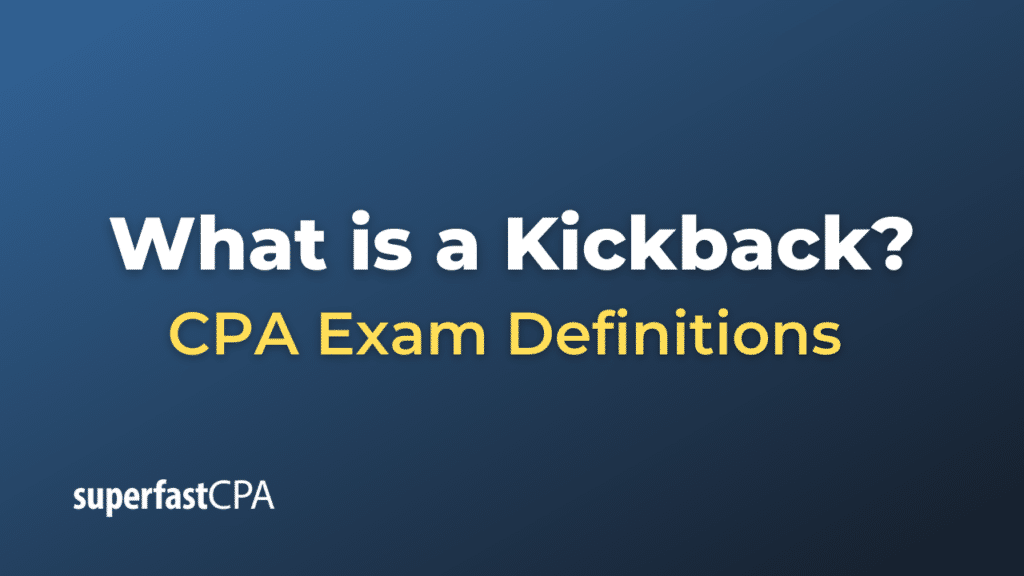Kickback
A kickback is an illicit payment, often made in exchange for favorable treatment or for some kind of preferential service. Essentially, it’s a form of bribery. Kickbacks are often made in return for assistance in securing contracts or other business advantages.
For example, in the business world, a kickback might involve a supplier paying a procurement officer at a potential client’s company to ensure that the client chooses their products or services over the competition. This could be in the form of cash, gifts, vacations, or any other item of value.
Kickbacks are illegal in most jurisdictions as they undermine fair business practices, often leading to inflated prices and compromised quality. They are also unethical as they involve deceit and corruption, and can lead to significant legal penalties and damaged reputations for those involved.
Additionally, in the realm of healthcare and pharmaceuticals, the Anti-Kickback Statute in the United States makes it a criminal offense to knowingly and willfully offer, pay, solicit, or receive any remuneration to induce or reward referrals of items or services reimbursable by Federal health care programs.
In the financial sector, fiduciaries and financial advisors are typically prohibited from accepting kickbacks due to the conflict of interest that it presents, as it can lead them to make recommendations that are not in the best interest of their clients.
Example of a Kickback
Suppose there’s a construction company, ConstructCo, that wants to secure a lucrative contract for a major infrastructure project in a city. To increase their chances of winning the contract, the CEO of ConstructCo, Mr. Johnson, approaches the city’s procurement officer, Mr. Smith, who has significant influence over which company will be awarded the contract.
Mr. Johnson covertly offers Mr. Smith a kickback, promising him a sum of $100,000 if ConstructCo is awarded the contract. If Mr. Smith agrees to this arrangement and subsequently manipulates the selection process to favor ConstructCo, both parties would be participating in an illegal kickback scheme.
If discovered, they could face severe legal consequences, including fines and imprisonment, and ConstructCo could be barred from future government contracts. Additionally, such unethical practices could lead to public scandal and irreparable damage to their professional reputations.
It’s important to note that kickbacks are considered illegal and unethical, as they corrupt the fairness of the business process, leading to possible suboptimal outcomes for the public or for other stakeholders.












